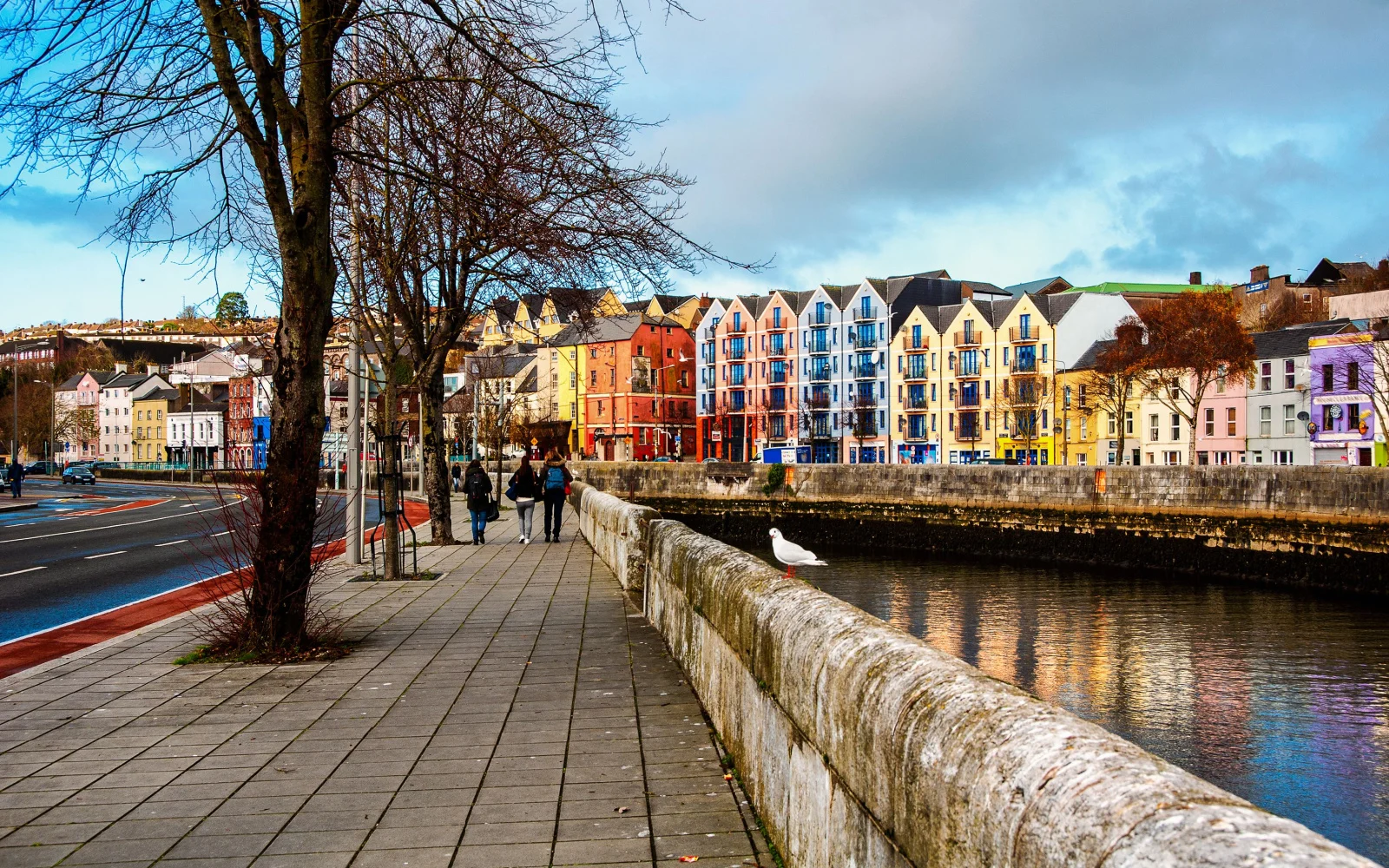Is Ireland safe to visit in 2026?
Ireland, or the Emerald Isle, is a very popular destination for lovers of nature, history, and culture. It receives over 10 million visitors a year, showing its popularity among international visitors.
Most people start their trip in Ireland in the capital Dublin, which has historic sites such as The Book of Kells, places dedicated to literary greats such as James Joyce, and of course, amazing nightlife.
There are many historic sites outside of Dublin, from the fishing town of Galway to the dramatic walls of the Rock of Cashel.
Ireland’s nature is also spectacular, from the sheer drop of the Cliffs of Moher to the beautiful landscapes along the Ring of Kerry. With so much to see and do, you’ll be tempted to join one of the millions of annual visitors as soon as you can.
However, before visiting any new place, it’s always a good idea to rein in your enthusiasm and research practical concerns first, such as safety.
This detailed safety guide can prepare you with everything that you need to know for visiting Ireland. Keep reading for detailed information about everything you might encounter, including crime.
Is Ireland Safe to Visit in 2026?
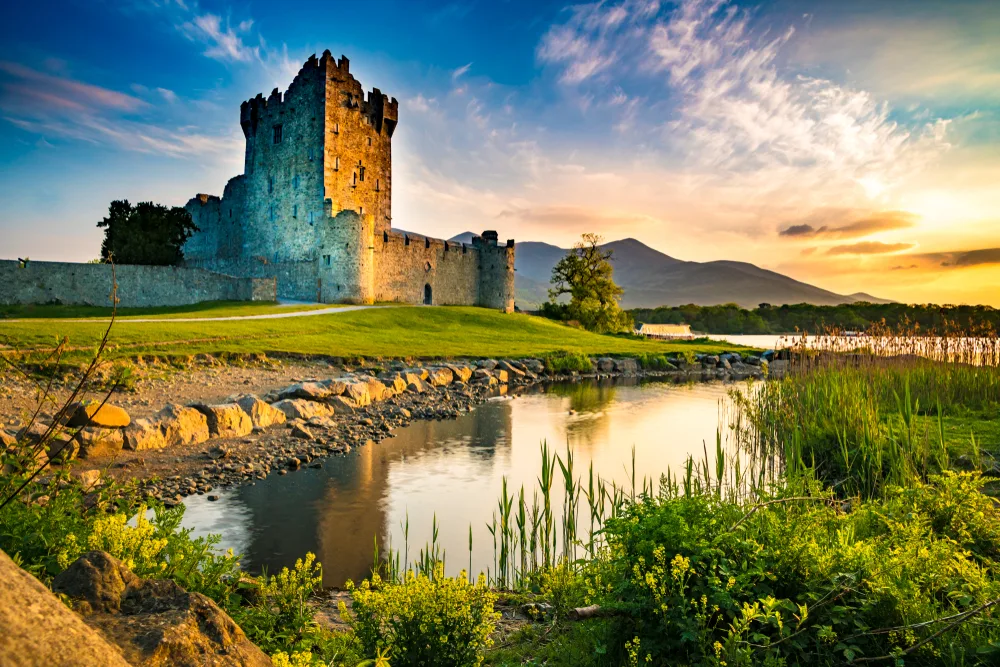
Adam Machowiak/Shutterstock
Yes, Ireland is a very safe country to visit! The country has an extremely low crime rate, especially outside of cities such as Dublin.
You should take basic precautions to guard against petty theft and other minor crimes, but besides that Ireland is very safe. Most countries agree in their travel advisories that this country is a safe place to visit.
For example, the United States just issues a Level One travel advisory for Ireland, the lowest possible travel advisory that the State Department issues.
According to the advisory, American citizens just need to exercise the same basic safety precautions they would exercise at home. But Ireland does still have some problems. The issue most likely to affect tourists to the country is petty crime.
Common crimes targeting visitors include:
- Pickpocketing
- Bag snatching
- Scams
- Theft from vehicles
Most crimes that affect visitors are petty and non-violent. While violent incidents have occurred affecting foreign visitors, they are extremely rare, and you can easily avoid them with some basic precautions.
Many problems present in other countries in Europe are hardly present in Ireland. While some other countries, such as the neighboring United Kingdom, are under terrorist alerts, the risk is rare.
Some people are worried about sectarian terrorism and the legacy of The Troubles. However, this conflict is confined to Northern Ireland, which is still part of the U.K. The Republic of Ireland, the independent country, has almost no risk of terrorism.
The risk of civil unrest is also low. Demonstrations may occur, but they are almost always peaceful. Still, it’s a good idea to stay away from any demonstrations as a visitor as you don’t know the local political context you might be getting involved in.
Ireland doesn’t even experience many natural disasters. The country’s geological survey mentions that most natural disasters that occur in Ireland are floods, sinkholes, and landslides.
However, the country’s wild weather is something that you definitely have to prepare for. Ireland experiences frequent rain all year round.
The weather can change rapidly, and a sunny day can quickly become cloudy and rainy in just a matter of minutes. It’s important to prepare for these weather changes, especially if you are planning on exploring Ireland’s nature.
When exploring Ireland’s nature, you should also watch your step.
Several people have died from falling off of Ireland’s dramatic cliffs or other aspects of the landscape. Don’t get too close to the edge of a cliff or engage in other risky behavior in steep areas. No photo is worth risking your life.
Crime in Ireland
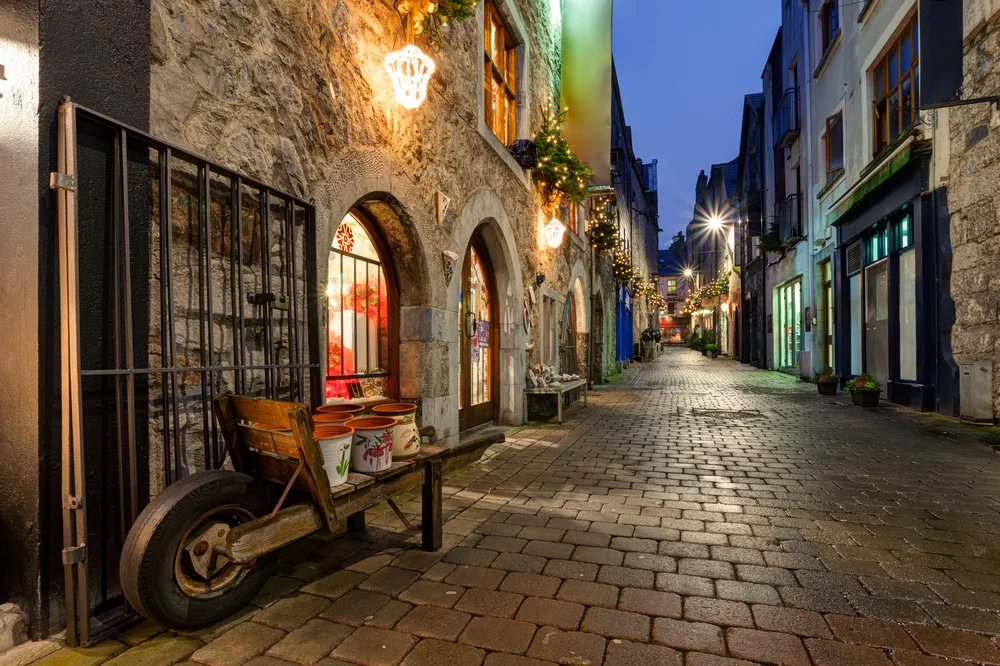
Rihardzz/Shutterstock
In the absence of other dangers, then the problem you will encounter the most in Ireland is probably crime. The good news is that Ireland has a very low rate of violent crime.
According to statistics from the World Bank, the homicide rate in 2020 was 0.69 incidents per 100,000 people, an extremely low homicide rate. Homicide rates are usually indicative of other violent crime rates, so that is good news for Ireland locals and visitors.
However, not all crime statistics coming out of Ireland are positive. In 2022, the rate of homicides and other violent crimes increased by 30%.
While this isn’t necessarily cause for alarm since the rate of homicides was very low to begin with (the new annual total is just 69 murders for a country of over 5 million people), it is still somewhat concerning.
According to the official Irish Central Statistics Office, the rates of other crimes continued to increase in the first quarter of 2023. The biggest increase was in theft and related offenses, which increased by 36%.
This is definitely concerning because theft and related offenses are the most common offenses to affect travelers. Thefts also make up the biggest portion of crimes committed in Ireland.
There are a few reasons why crime increased in Ireland in 2022 and 2023. Most experts blame the end of pandemic-induced lockdowns as well as societal factors caused by them such as growing poverty.
The growth in crime is a worldwide trend, not just an Irish one. Plus, despite this increase in crime, crime has been trending downwards for more than the past decade.
What this means for visitors is that Ireland has some ugly truths hidden beneath the picture-perfect scenery.
However, most crimes do not affect visitors. You should be on your guard against theft, which is increasing, but basic precautions are usually enough to help you protect your possessions.
Petty Theft
Petty theft and street crime is the most common crime affecting visitors to Ireland. As with many other destinations around the world, thieves like to take advantage of visitors that may not be as street-savvy as locals and that are easier to distract than locals.
The most common form of petty theft is pickpocketing, although bag snatching can also happen. According to the UK government’s travel advisory for Ireland, most thefts occur in the Dublin area.
Pickpockets tend to operate around popular tourist destinations such as Temple Bar, Grafton Street, and O’Connell Street. According to the Australian government travel advisory, you should also be careful on public transportation and other crowded areas, such as Connolly Railway Station.
Basic precautions are usually enough to deter thieves. Make sure that you never leave your valuables unattended, even in places where you might feel a (false) sense of security such as your hotel lobby or a nice café.
Thieves often take advantage of distracted people and take their valuables when they aren’t looking. The best way to avoid theft is to do everything you can to avoid looking like a likely target for thieves.
Make sure that you don’t flash a lot of cash, expensive jewelry, or luxury watches that may signal to thieves that they will hit paydirt if they rob you.
Make it as hard as possible for someone to take your valuables by putting your things in places that are hard to reach, such as an inner jacket pocket or zipped bag compartment. Thieves in Ireland often work in groups. One or more people will distract you while others rob you.
Be wary of common distraction tactics such as asking you to take someone’s photo with an expensive camera, alerting you to a spill on your clothing, or asking you to sing an Irish song with them.
As with any tourist destination, there are some scams targeting tourists. When you sign up for a tour or book an activity, check for any hidden fees and ask if they are mandatory.
There have been cases of people charging admission for attractions, such as the Gallarus Oratory, that are actually free!
If you are booking something that requires a deposit, such as an accommodation or organized tour, always research the organization or company to make sure that they are reputable.
You don’t want to pay a deposit, only to show up in Ireland and realize that you are not receiving what was promised. More violent robbery incidents have happened in the past, but they are easy to avoid. Just don’t go into isolated areas such as parks after dark.
Theft From Vehicles
A very common form of petty theft in Ireland is theft from vehicles or car break-ins. According to the Canadian government’s travel advisory for Ireland, criminals often target rental cars.
The best way to avoid car theft is to avoid making your vehicle a lucrative target. Try not to leave belongings, especially valuables, in your car while you are parked.
Try to drop off your luggage at your accommodation before going sightseeing. If you have to leave items in your car, make sure that they are not visible through the windows. When you park your car, make sure that you lock the doors and roll up all the windows.
Research safe parking places along your route, especially for overnight parking. Most vehicle break-ins occur in Dublin, so a good tactic is to only pick up your rental car after you’re done exploring the city or turn it in before you visit the city.
Thieves also target cars in parking lots of popular tourist attractions in the countryside such as the Cliffs of Moher. When you are visiting a popular tourist destination, definitely make sure there is nothing in your car worth stealing.
Avoiding Bad Areas
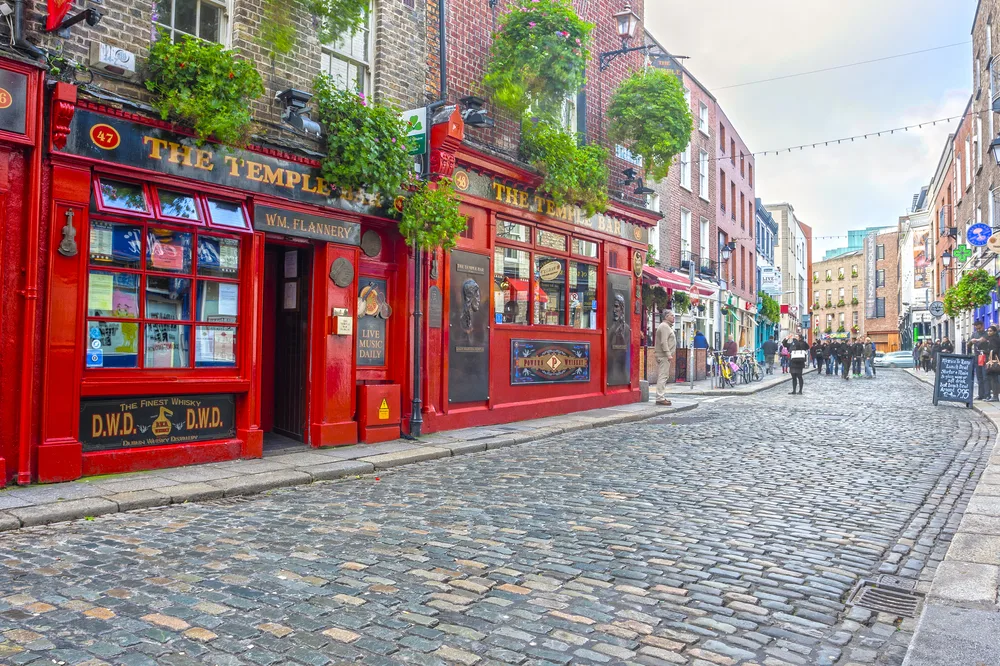
Dublin, Ireland – Oct 18, 2014: People around The Temple Bar in Dublin, Ireland on October 18, 2014/Aitormmfoto/Shutterstock
There are no areas of Ireland that you need to avoid, but there are some places with higher crime rates where you should be extra careful.
Thefts most often happen in downtown areas of bigger cities such as Dublin, Cork, and Galway. In Dublin, be careful in Temple Bar, especially at night, due to rowdy crowds of drunk people and the criminals who target them.
Some Dublin neighborhoods such as Tallaght have a bad reputation, but they are mostly on the outskirts of the city.
Things to Consider
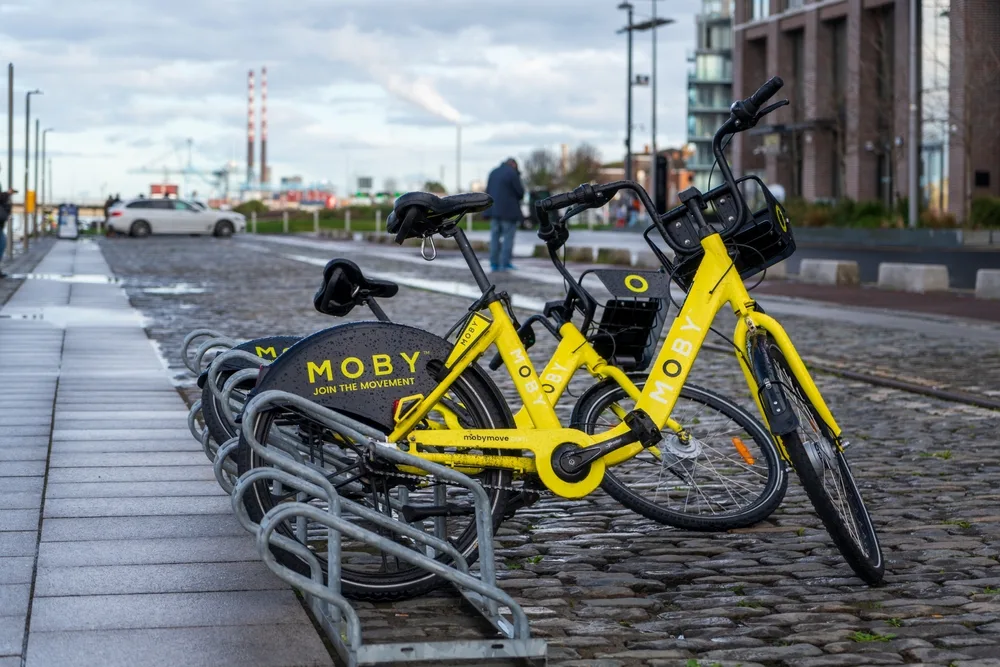
Olaf Gedanitz/Shutterstock
Here are a few additional safety tips for Ireland:
- There is no bad weather, only bad clothing. Assume that it will rain during your visit to Ireland and pack accordingly. Bring a waterproof jacket, layers, extra socks to change if you get wet, and waterproof shoes that will not slip.
- Be sensitive to the local political context. Most Irish people are laid-back, but some things still offend locals. Don’t call Ireland part of the British Isles as most people are still upset about the centuries-long colonization of the island. Don’t pry about The Troubles, especially close to the dividing line with Northern Ireland.
- Be careful when drinking. Ireland’s nightlife is an attractive draw, but you don’t want to overdo it.
- Be careful when cycling. Seeing Ireland by bike is a popular way to travel, but many of Ireland’s roads are not safe for cyclists. Research your route ahead of time. Ireland’s greenways are the best routes for cyclists.
Frequently Asked Questions
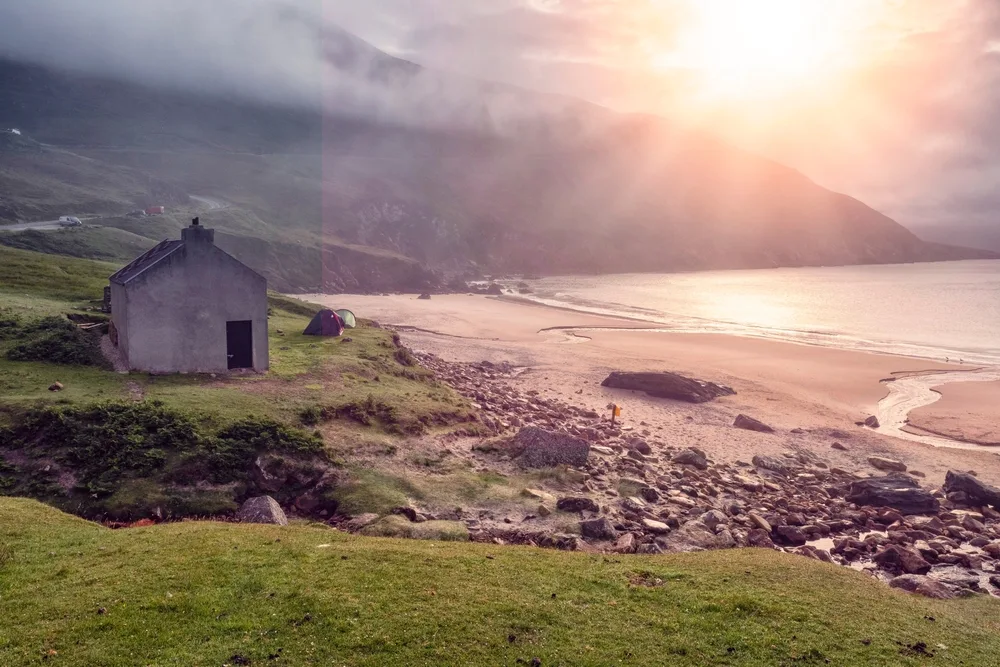
Mark Gusev/Shutterstock
Here are some common questions previous visitors have asked about Ireland:
Is Ireland safe to visit right now?
Yes, Ireland is safe to visit right now. Although the crime rate has increased in recent years, most incidents don’t affect locals and overall crime rates are still very low.
Which part of Ireland is safe to visit?
All of Ireland is safe to visit as the whole country has a low crime rate, except for a few Dublin neighborhoods and smaller cities. The safest place is probably County Mayo.
Is Ireland safer than the UK?
Yes, Ireland is safer than the UK! All of Ireland has a lower crime rate than the UK, and a lower risk of problems such as terrorism and civil unrest.
Is Ireland a friendly country to visit?
Irish hospitality is world-famous, and Ireland is a friendly country to visit. In fact, according to some tourists, Ireland is the friendliest country in Europe!
Is it safe to walk in Dublin at night?
Dublin is only safe to walk at night if you stick to well-lit areas with lots of pedestrian traffic. Avoid poorly lit side streets, parks, and rowdy nightlife areas.
So, Is Ireland Safe to Visit?
Ireland is incredibly safe for visitors thanks to its low crime rate. As long as you take some precautions to protect your possessions, you should have a very safe visit.
So, with so much to see and do and a relatively safe environment, what are you waiting for — book your trip today and experience for yourself all that this picturesque country has to offer. Happy travels!



